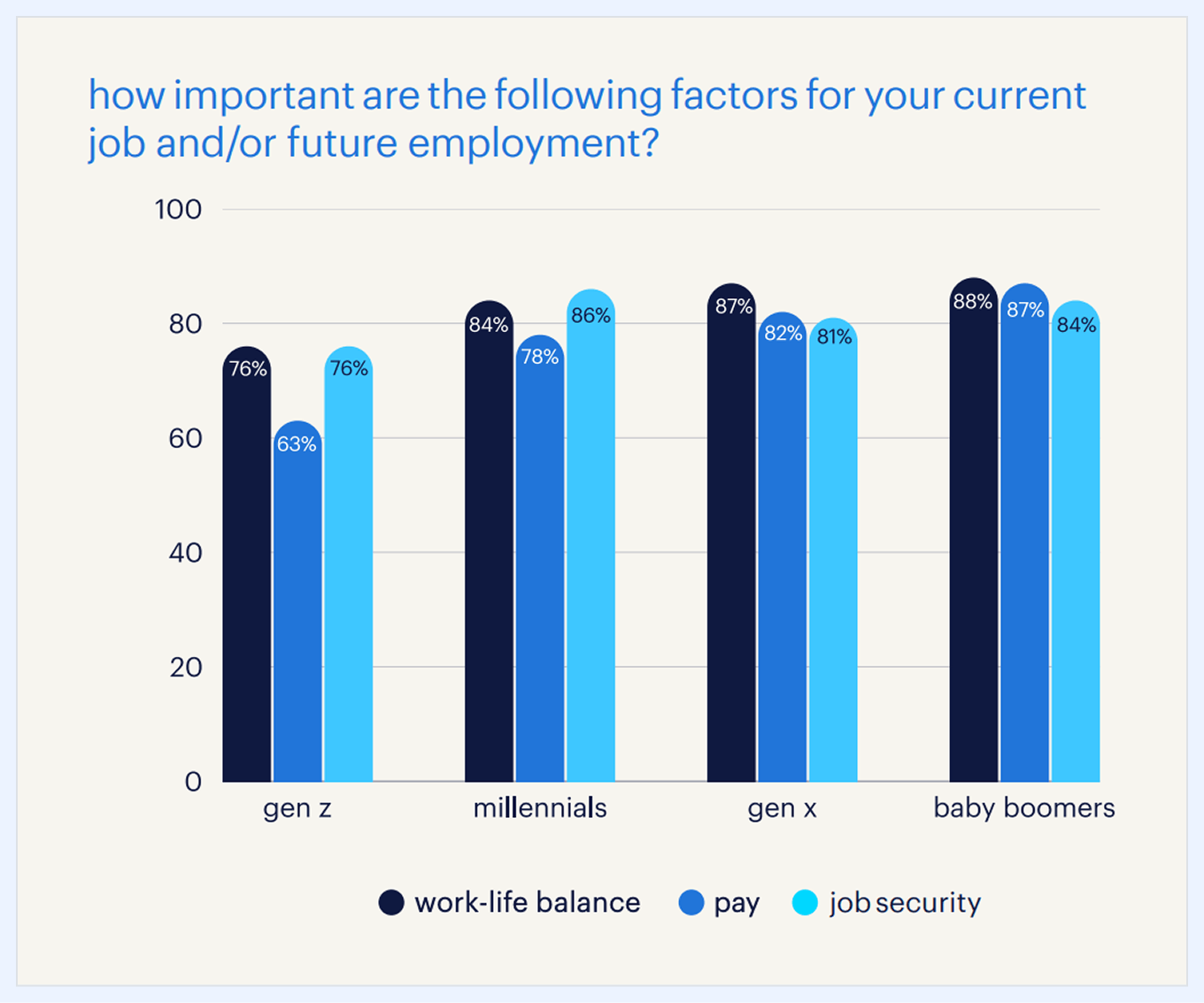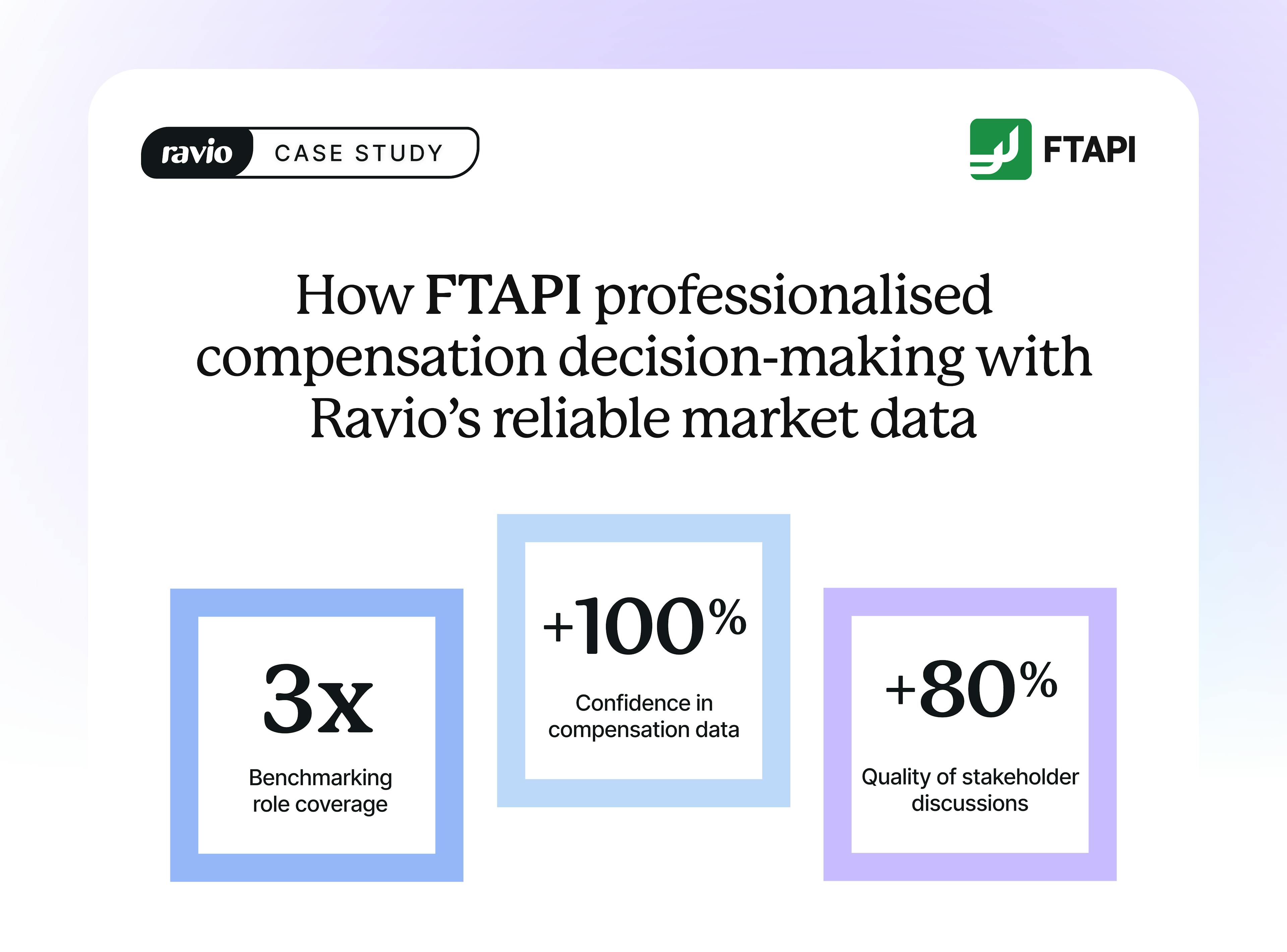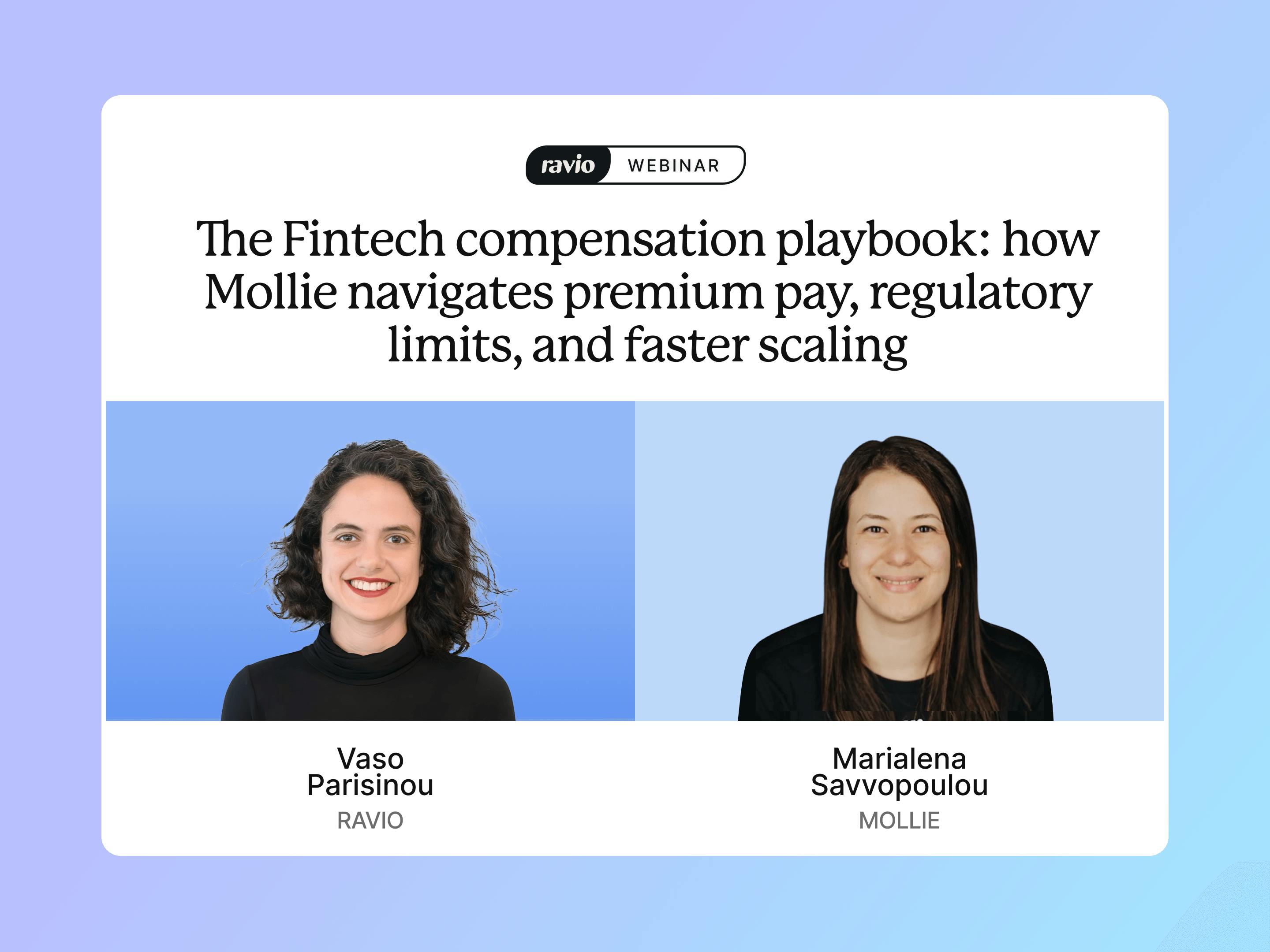- The authenticity principle: Why aligning with the reality of your own culture beats copying big tech
- Listen to your people to understand what's driving them to look elsewhere
- Design benefits that address what’s actually making employees look elsewhere, instead of checking boxes
- The compound effect: Authentic Rewards have to be amplified across all other aspects of the company
- The key takeaway: Authenticity can be your biggest advantage for increasing average employee tenure
Every Reward professional knows the scenario: star performer leaves, leadership asks what went wrong, someone suggests better perks are needed.
It's a frustrating cycle. Employees leaving means high replacement costs (up to twice the leaver’s salary!), productivity drops, and remaining staff facing increased workloads.
The response is usually the same: bump up salaries (if there’s the budget), expand the benefits menu, plan a great Christmas party – and hope the retention follows.
But with average employee tenure in tech still sitting stubbornly low, it's clear that the standard Rewards playbook doesn’t always work.
Isha Smith, Global VP of Total Rewards at SoundCloud, proved there's a different path.
Her approach – authenticity over imitation, tailored to company identity – improved average employee tenure at Soundcloud by 78% to an average of 3.2 years, without breaking the budget or copying what everyone else does.

Subscribe to our newsletter for monthly insights from Ravio's compensation dataset and network of Rewards experts 📩
📊 What is the average employee tenure in 2025?
The average employee tenure in 2025 is 2 years and 1 month (Ravio 2026 Compensation Trends report).
Average employee tenure has increased steadily over the past three years, gradually lengthening from 1 year 9 months in 2023 to 2 years in 2024, and now 2 years 1 month in 2025.
The authenticity principle: Why aligning with the reality of your own culture beats copying big tech
A common mistake that companies struggling with low average employee tenure make is to try to compete with tech giants by copying their playbook for employee engagement.
Big base salaries, ping pong tables, free beer, unlimited holiday.
Isha advocates for the opposite approach.
“For most companies it just isn’t financially feasible to take the approach of ‘we’re going to offer everything big tech companies do,” Isha explains. “The best Rewards strategies are those that are tailored to the unique context of each company.”
“So, instead, get clear on the culture and values of your actual team, and are tailored to that context” she recommends. “With benefits for instance, when you choose perks that authentically speak to your team’s culture, those things that will actually resonate.”
It isn’t about cutting corners or settling for less.
It’s about recognising that employees don't stay at companies because of generic perks or because they’re being paid slightly more than they could get elsewhere. They stay because they feel connected to something meaningful and authentic.
In Isha’s current role at SoundCloud, for instance, this meant focusing on fertility benefits and hybrid working policies, in reflection of the company's mission to support creators from historically marginalised communities.
Listen to your people to understand what's driving them to look elsewhere
Before you can design Rewards programmes that address employee tenure challenges, you need to understand what's actually driving people away.
For Isha, figuring out which areas are most important to focus on has to come from listening to your team members to find out what actually makes them look elsewhere for work.
"I really believe in listening and trying to get feedback from as many sources and different sources as you can," she explains. “Formal surveys are great, but informal discussions and listening sessions with diverse employee groups are important too.”
"At Soundcloud, inclusivity is a big focus, and I’ve found community meetings to be the most enlightening. When you listen to people talking about what work is like for them, that’s when you find out where you should be focusing.”
This approach reveals insights that no benchmark or industry report can provide.
At SoundCloud, for instance, these feedback avenues provided insights that directly informed their parental leave strategy.
When you understand the specific challenges your people face, you can design targeted solutions rather than generic perks that miss the mark entirely.
Design benefits that address what’s actually making employees look elsewhere, instead of checking boxes
Armed with insights from these listening sessions, Isha's approach then focuses on designing benefits that directly address the root causes of the specific tenure challenges she's identified.
At SoundCloud, for example, one key challenge was attracting and retaining women and non-binary employees in a predominantly male tech environment.
"We know we have the typical tech company makeup of a lower representation of women and non-binary employees," she explains, "and one of our key goals is to change that.”
Rather than implementing generic employee benefits to try and improve average employee tenure, SoundCloud’s approach was to identify what support the company could offer to genuinely support those groups.
One result was introducing a baseline of 16 weeks paid parental leave for all employees – regardless of gender or how families are formed. This is valuable for a range of different reasons:
- Non-birthing partners receive significantly more time off than is typical under statutory minimums (e.g. 1-2 weeks in the UK), giving them time to bond with their new child whilst providing crucial support to the birthing partner.
- Gendered assumptions are removed from the parental leave policy, in support of non-binary colleagues.
- Equal recognition and support regardless of how children join the family, crucial for those forming families through different paths like adoption or surrogacy.
“We found that enhancing our fertility and family forming benefits sat nicely at the intersection of our goals,” says Isha. “Support to make work-life balance work as new parents was a key factor in retention, and we were able to tailor our approach to this to account for our diversity and inclusion focus too.”
This targeted approach works because employees can sense when benefits are thoughtfully designed to address real needs, and reflect genuine organisational values, versus when they're clearly just a box-ticking exercise.
When your benefits solve actual problems that might otherwise drive people away, they become crucial retention tools rather than expensive add-ons.
The compound effect: Authentic Rewards have to be amplified across all other aspects of the company
Isha emphasises that improvements to average employee tenure will never come from compensation and benefits alone – there has to be a coherent narrative across the company.
"The improvements we've seen to average employee tenure at Soundcloud haven't been because of the benefits I've put in place or all the work my Rewards team is doing," Isha explains.
"It's about everything coming together cohesively: from the company direction driven by the leadership team, to the messaging we put out as a brand, to the benefits we include in our compensation packages."
This is perhaps the most crucial element of her approach: authentic Rewards don't work in isolation. They work because they're part of a consistent story about who your company is and what it stands for.
The family-forming benefits exemplify this perfectly.
As we've seen, SoundCloud's company mission centres on supporting artists and amplifying diverse voices. By designing inclusive parental leave that supports all types of families from all types of backgrounds, the benefit becomes a tangible expression of these values rather than just another perk.
But without a clear articulation of the company's mission, or the strategic direction on how that should shine through in every function's work, it wouldn’t deliver the desired results.
Similarly, SoundCloud has a 'connection-first' hybrid-working policy that reflects their understanding that, like music itself, the best work happens through authentic connection rather than forced proximity. The policy prioritises meaningful collaboration over mandatory office attendance.
Given that work-life balance was voted as a higher priority than salary by survey respondents for Randstad’s 2025 Workmonitor report, it’s highly likely that thoughtful flexible working policies like this will do way more for improving average employee tenure than throwing cash at the problem could.

Meanwhile, workplace experiences like DJ breakfast sessions featuring SoundCloud creators performing live serve as authentic draws to the office – employees aren't just coming in for free food, but to enjoy these experiences whilst seeing their company's mission in action, connecting with the creators the platform serves.
When every touchpoint reinforces the same authentic story, employees develop the kind of connection that keeps them engaged long-term.
The key takeaway: Authenticity can be your biggest advantage for increasing average employee tenure
Isha's experience shows that authentic and bespoke Rewards strategies can significantly outperform generic approaches in many different areas – including improving average employee tenure.
The 78% increase in average tenure SoundCloud achieved didn't come from copying what everyone else was doing – it came from understanding the company's identity and the factors that were preventing great team members from sticking around, and designing benefits programmes that reflected that.
"Every wrong answer can be a right answer in a different organisation," Isha reflects. "The ability to tie all those little nuggets of information about your team into the organisation's values – I think for me is where the magic happens."
So figure out who you are, listen to what your people actually value, and build a Rewards strategy that authentically reflects both. The results might surprise you—and your average employee tenure will thank you for it.




